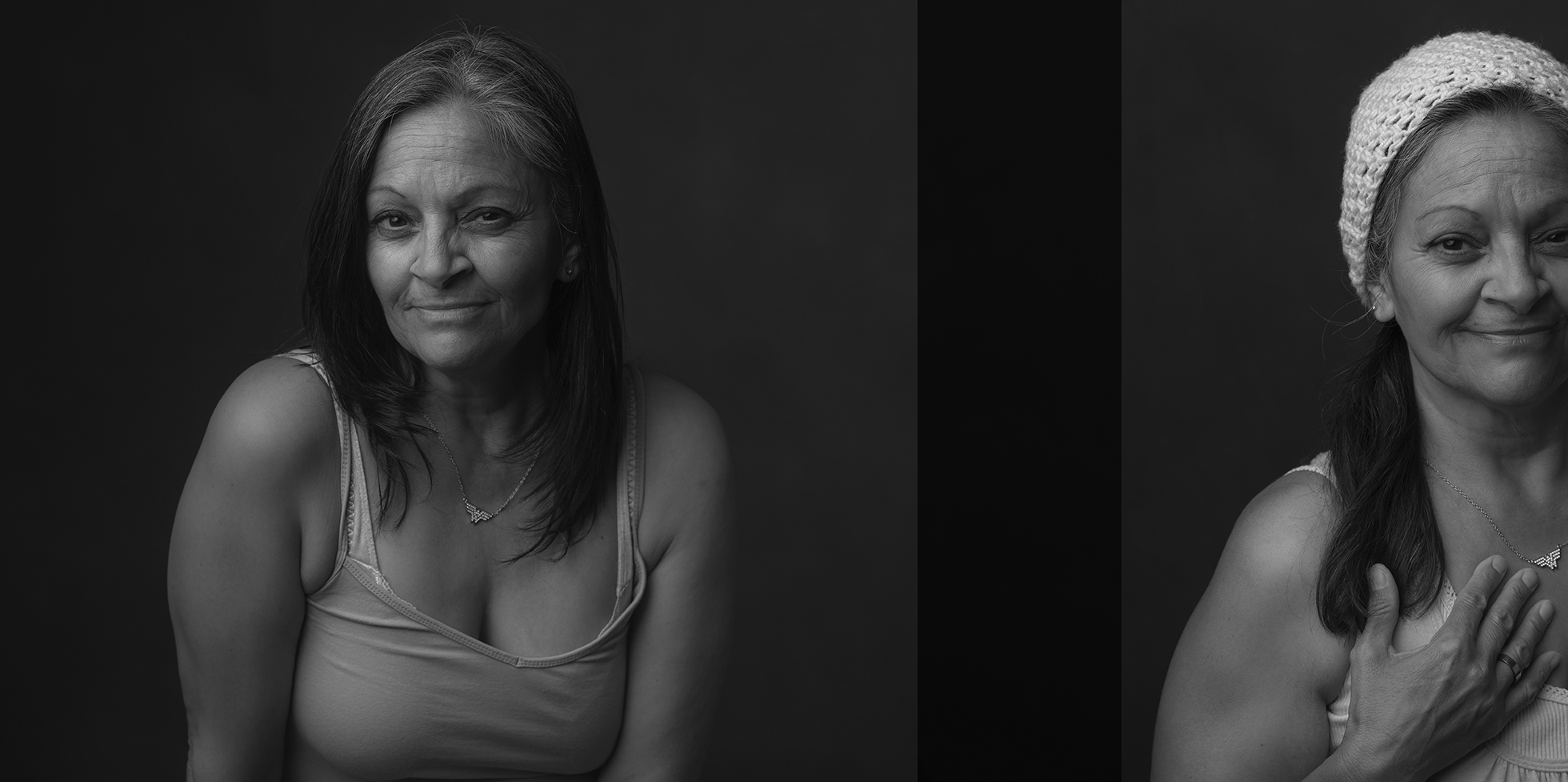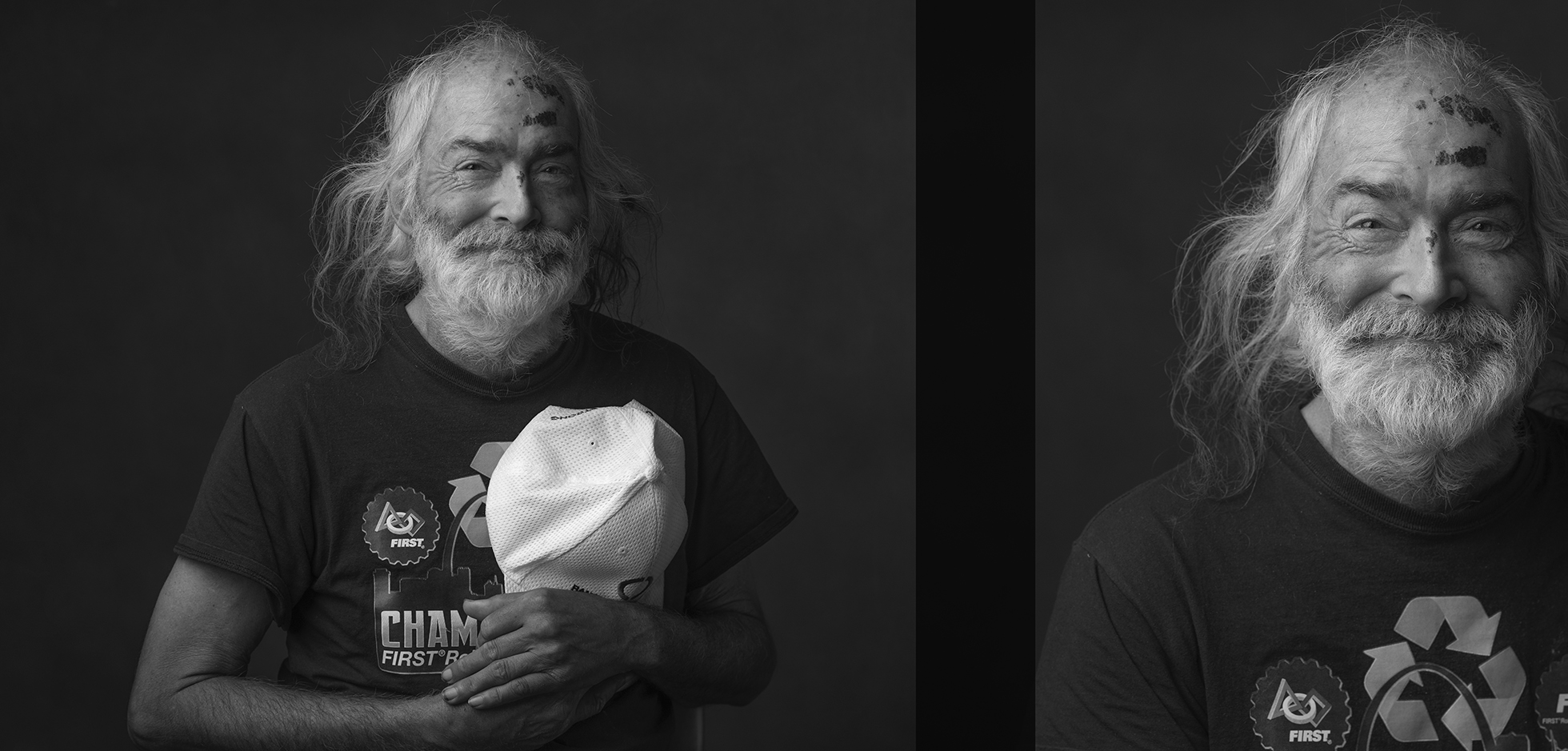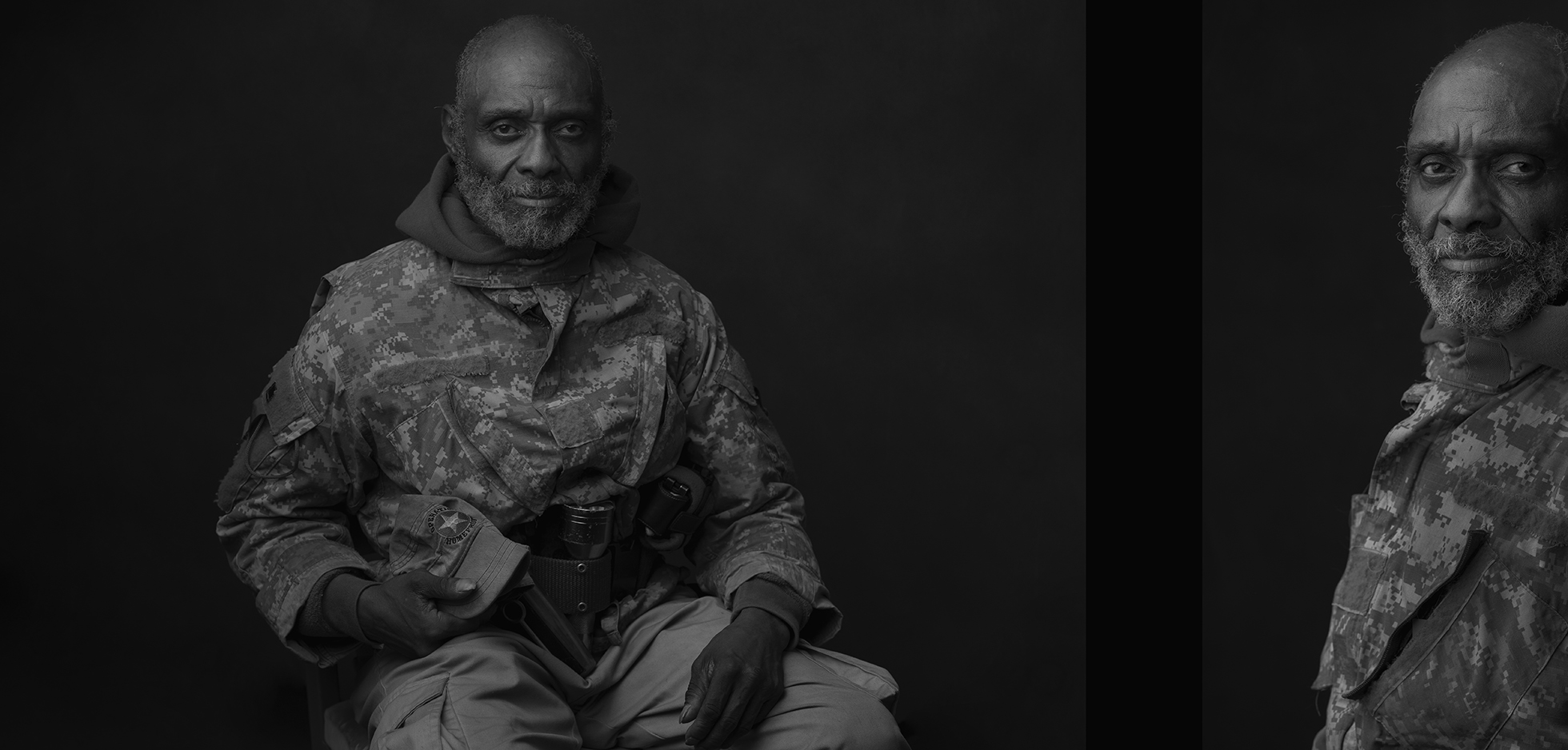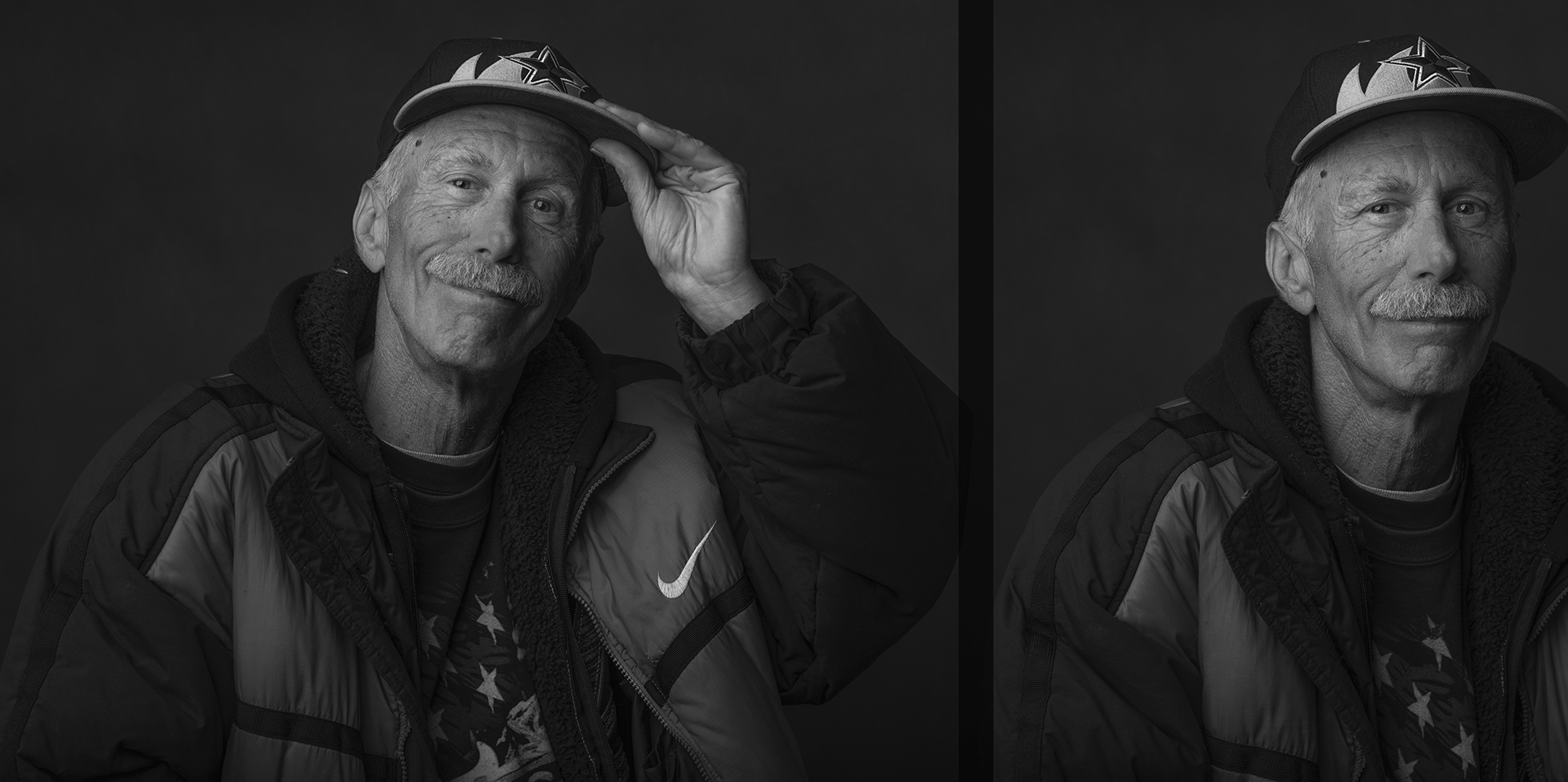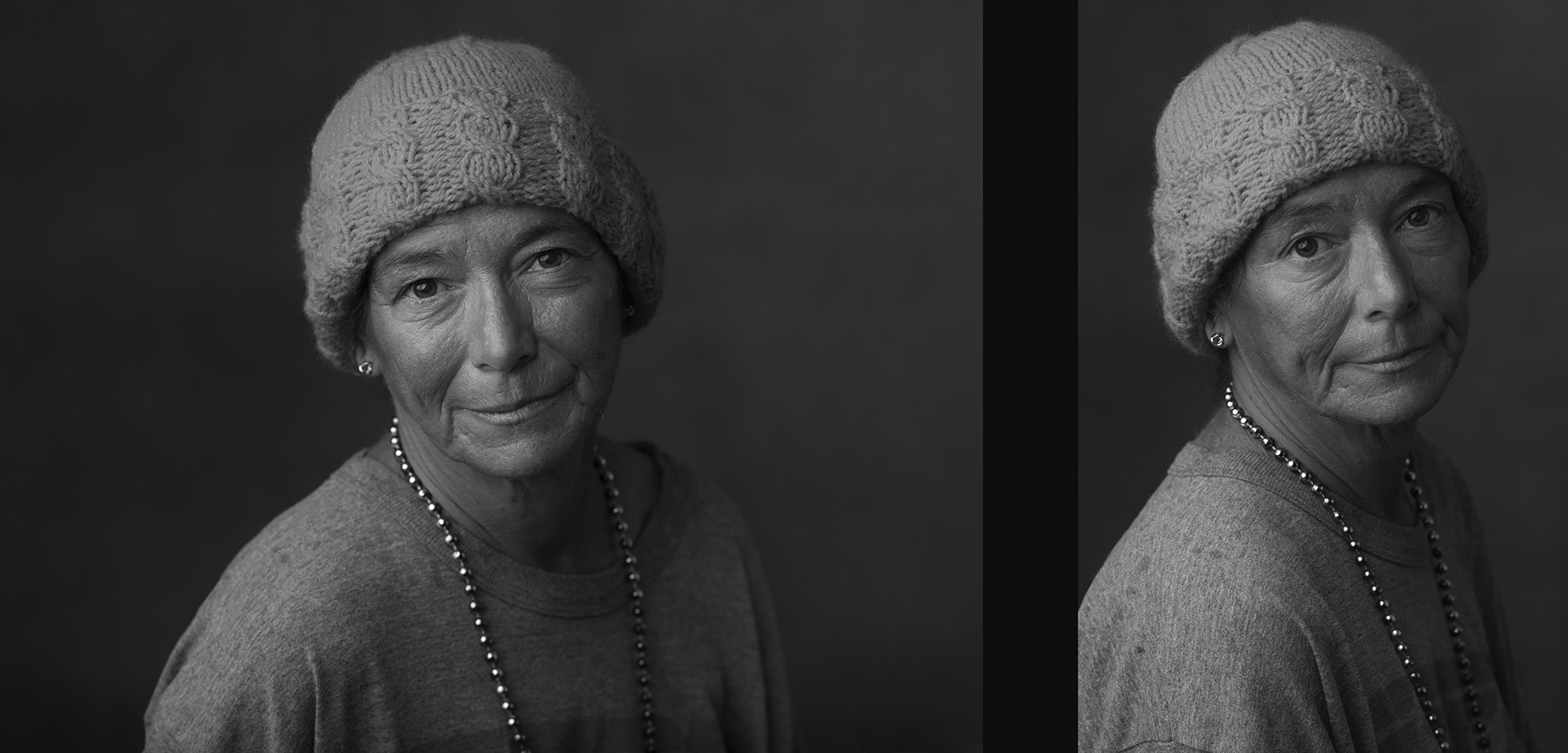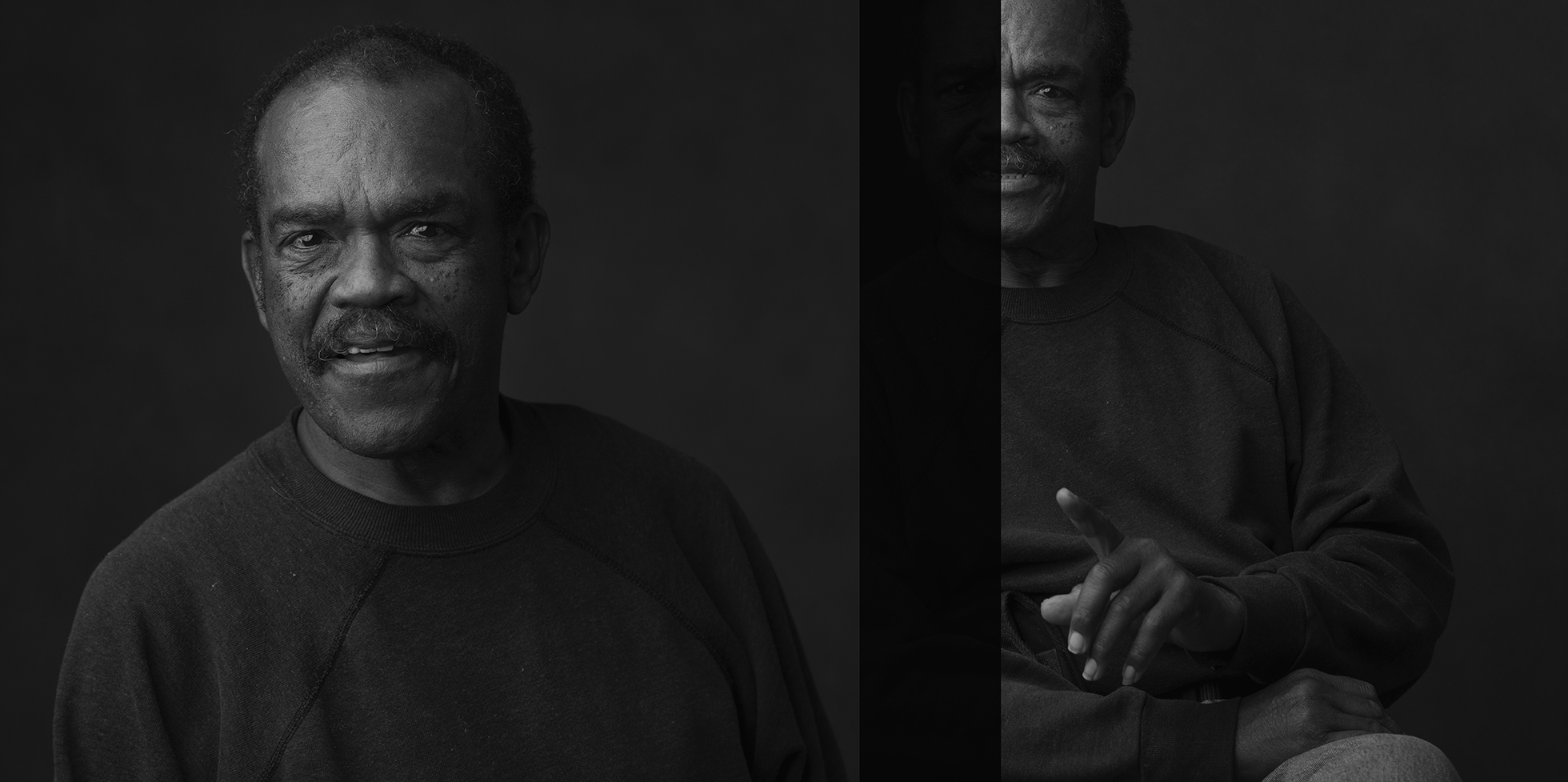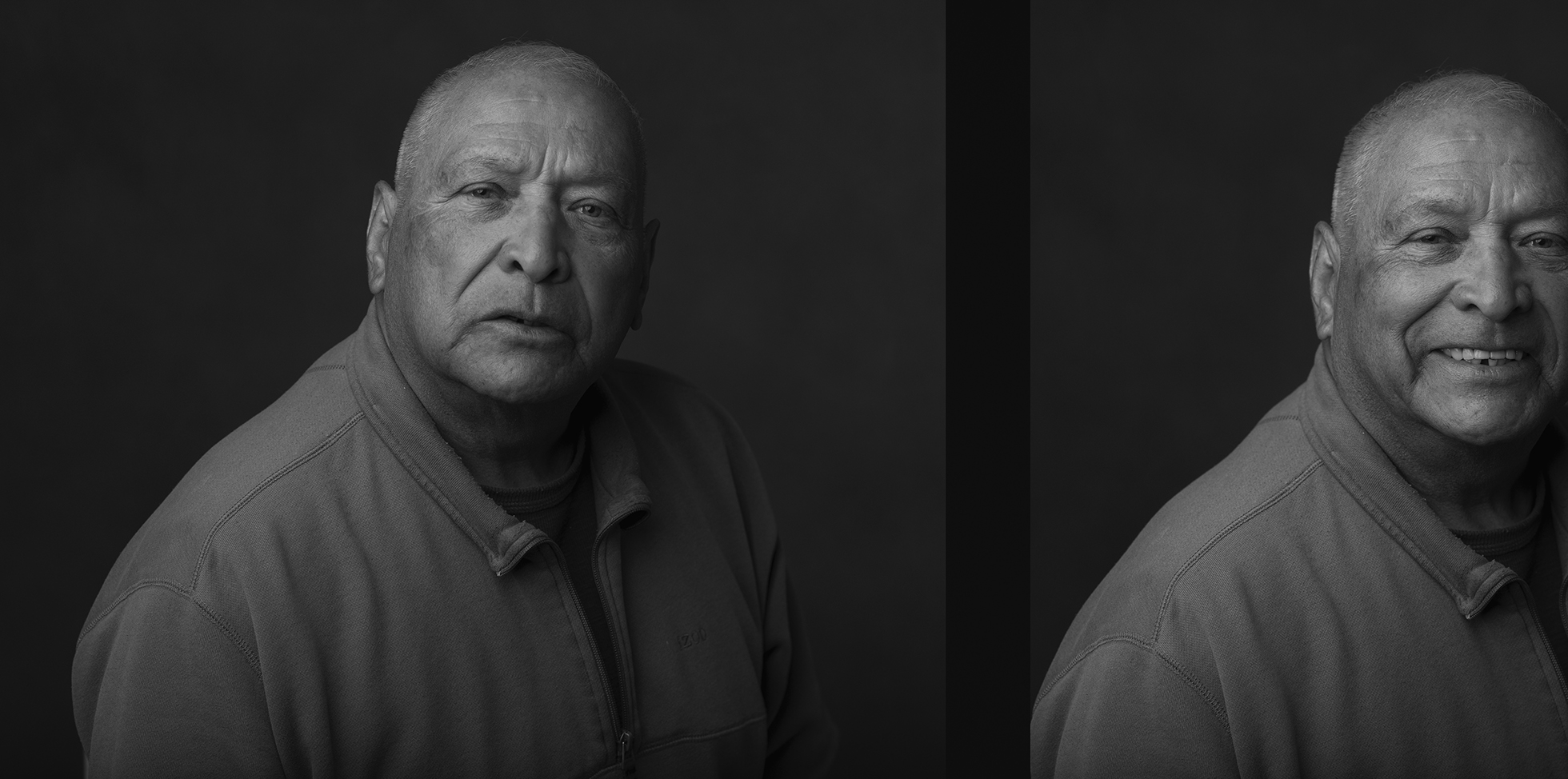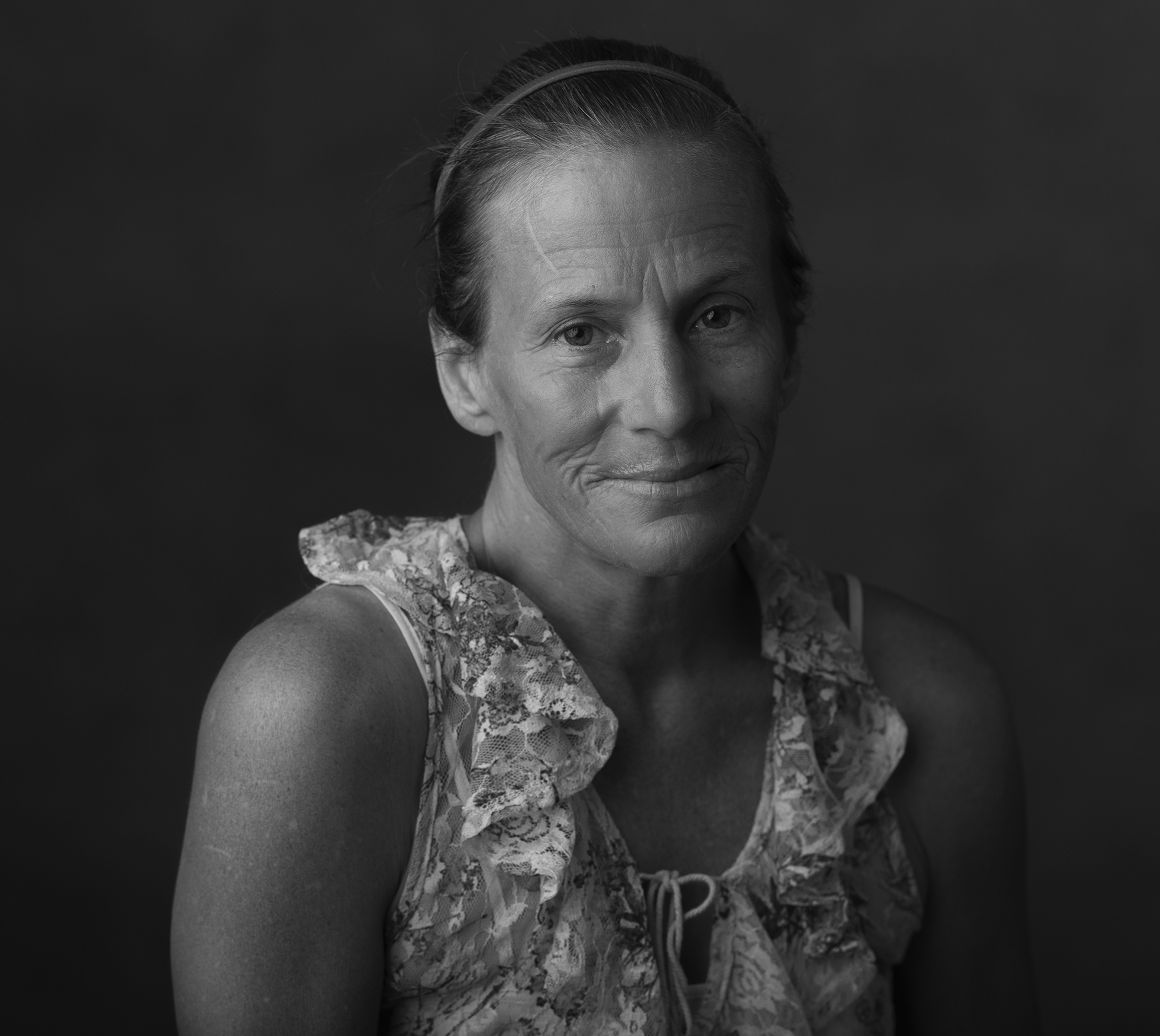For the past two years Doug Winter has been photographing and interviewing people at Loaves & Fishes in Sacramento, California. Founded in 1983, the charity’s mission is to feed the hungry and shelter the homeless, but it also tries to meet less tangible needs for “love, acceptance, respect, and friendship.” Their guests — who may number up to a thousand on a given day — can eat a meal, do laundry, take a shower, receive mental-health counseling, and socialize in Friendship Park, an outdoor space at the center of the organization’s campus. Loaves & Fishes estimates that more than half the people who come there are over fifty, more than half have a psychiatric diagnosis, and about 60 percent are sleeping outside every night.
Winter sets up his equipment in the Loaves & Fishes library once a month. The subjects get to keep prints of their portraits, which Winter also shares on his blog (dougwinterstudio.com/blog) in an effort to increase awareness and understanding of homelessness.
— Ed.
Cornelius and April (above) met on the street four years ago and discovered they’d had similar struggles growing up. Both had to drop out of school to help take care of family. “The last week of the month, we never had any food,” Cornelius says. “I filled out many job applications, but I could never get a job. So I started hustling, selling drugs.”
Cornelius spent thirty years in prison. April is retired. Now they live in an old Cadillac that’s often in danger of being towed due to tickets or other violations. Both receive some assistance every month, but not enough to afford an apartment in Sacramento.
When they wake in the morning, they usually go to Friendship Park. “It’s nice not being hungry and being able to do laundry,” April says. “It’s a safe place, and we can meditate there, too.”
Gloria, a fifty-four-year-old mother of two, first tried crystal meth at a party more than twenty-five years ago. She used meth daily, in part to numb the lasting pain of sexual abuse she’d survived as a child. Then an overdose and a failed suicide attempt pushed her into recovery: “I saw myself floating over my body, and I saw myself ask my boyfriend for help, but he had his headphones on and couldn’t hear me. So I asked God to help me, and then I woke up on the couch.”
Gloria currently lives in Sister Nora’s Place, a long-term women’s shelter at Loaves & Fishes. She has been off meth for five years and goes to 12-step meetings.
She wears a small Wonder Woman necklace. For her it means “stand up for yourself, be strong, don’t be afraid to say no.”
Gregory is sixty-four and grew up in Jamestown, North Dakota. His grandparents had a cabin on Spiritwood Lake, eighteen miles north of his hometown, and he spent the summer months there swimming, learning to sail, and fishing with his grandfather. For Gregory the deep blue-green waters of the lake were an escape from the school year: “I felt like that was my home. They had to force me to go back to town.”
Gregory made it through three years of college as a pre-med student, but a car wreck put an end to his academic career: “The doctors told me I had to accept the fact that I might never walk again,” he says. “I didn’t accept that. I was going to find a way to walk, and I did.”
Anthony was born in Rayne, Louisiana, in 1955. He lives in a small room at a boardinghouse near Loaves & Fishes. Eighty-five percent of his monthly assistance goes to pay his rent. He acknowledges how tough it was to live on the street, avoiding the cops and the looming possibility of jail. (Thousands are arrested each year in California for vagrancy.) Anthony says anyone who “stands under the blue sky” could end up in the situation he is in.
James was born in 1954 and grew up in San Francisco. He worked concessions and ticket sales at Candlestick Park before he was drafted into the Army and did two tours of duty in Vietnam.
James’s mother passed away last year from cancer: “She was a tough woman. She gave me money and put a roof over my head. She made me omelets before I went to school and packed brownies in my lunch. We got along really well.” He pauses to find the right words for what his mother did for him: “She gave me the opportunity to be myself.”
Nina, a forty-nine-year-old Sacramento native and mother of four, has been living outside for about a year and a half. She graduated from high school in 1985 and started working as a cashier at an auto-parts store. Then the store got robbed during her shift by someone who shoved a gun in her face. A few weeks later her fiancé was hit by a car. Within a year he was dead from medical complications.
“It’s been a rough journey,” Nina says.
A woman she met at Maryhouse, the Loaves & Fishes daytime shelter, has offered to let Nina spend a weekend in her home. “I’m going to see how it goes,” Nina says. “I’ll be inside. I hope it works out.”
Michael has been a firefighter, a certified welder, a diesel electrician, and a maintenance worker. He also helped build the light-rail system in Sacramento.
In 1969 Michael was drafted and sent to Vietnam, where, because of his wiry frame and high-school wrestling experience, he became a tunnel rat: “They wanted me to go down into the holes and crawl through the tunnels that ran under the jungle and get the enemy to come up out of there.”
Michael lives in Guest House, a recovery center for people who are working their way back from addictions or have just come out of lockup. He also volunteers at the Loaves & Fishes kitchen. He says it helps him stay busy and give back.
Bill, a California native, grew up very poor, dropped out of high school, became homeless, and lived a wild, reckless life until one day he “woke up dead” in a motel room: “My body was cold. I saw a bunch of people standing above me.” He had overdosed on heroin, and the EMTs had given him a shot of Narcan to revive him. “I felt so ashamed. I almost started crying.” It was that shame, he says, that got him off drugs. In recovery he attended 12-step meetings, got mental-health treatment, and joined a health club.
He also found employment at the Masonic Temple as a janitor and groundskeeper: “That’s what really got me out of the gutter. I saved my money over the years, and I was able to buy a mobile home over here near the river.”
Bill is retired now and helps his neighbors in the mobile-home park with landscaping and other chores.
Teresa likes reading, writing, and photography. She especially enjoys science and medical books.
A fifty-five-year-old mother of five, she has been living alone in a tent for about a year. She owns a house but can’t go back there due to the threat of violence.
“I have to do something else,” she says about her living situation. “I can’t be outside anymore.”

